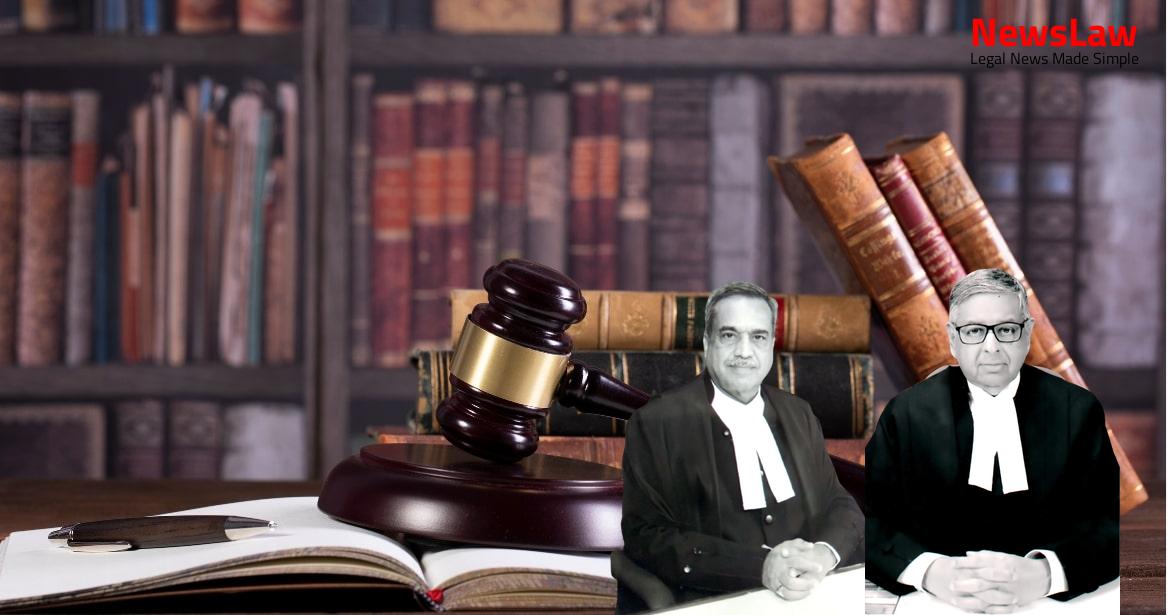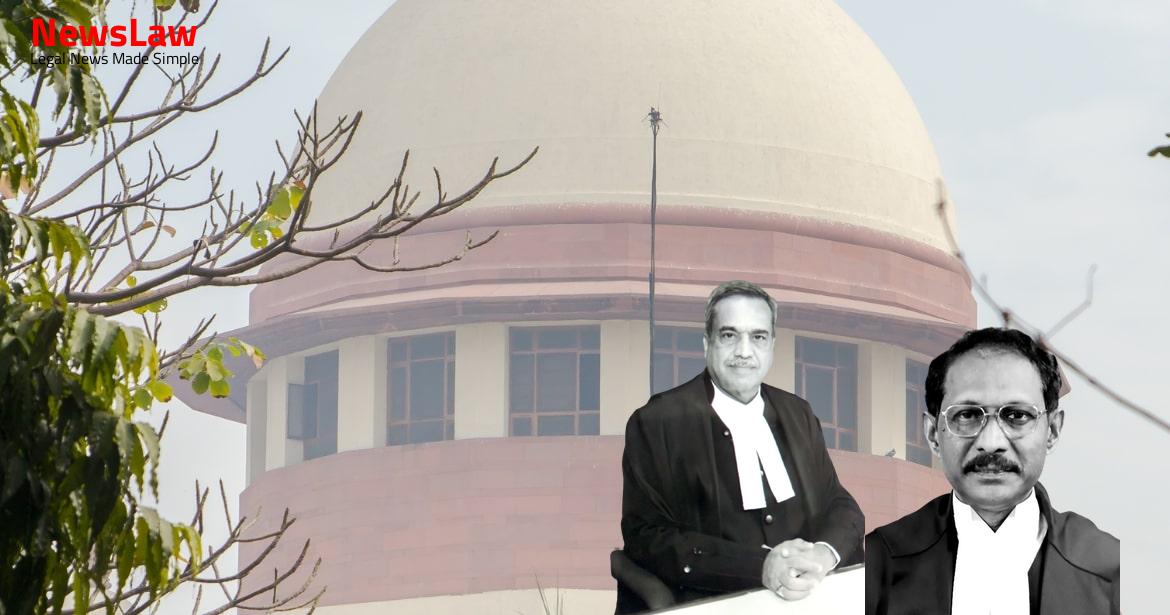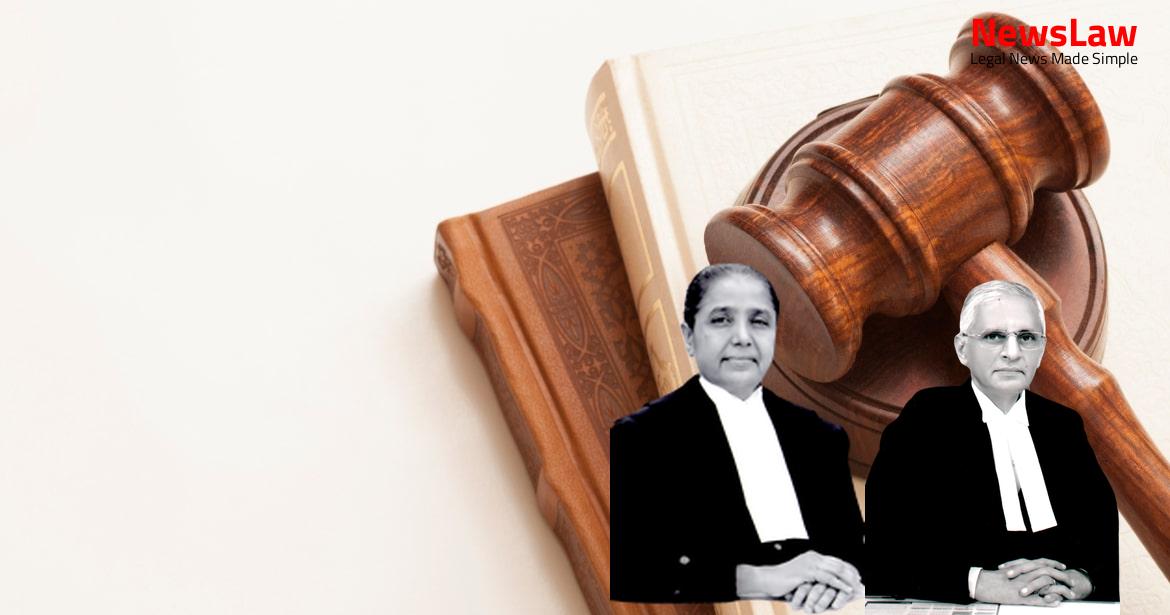The importance of clarity in legal judgments cannot be overstated. A recent case highlights the critical need for precise and well-structured court decisions, especially when dealing with serious offenses. The analysis of the court’s legal reasoning and decision-making process plays a pivotal role in ensuring fairness and accountability within the judicial system.
Facts
- The learned trial Court passed an order to prosecute the then Station House Officer, Sub-Inspector of Police Jainath Yadav and the Doctor Vinod Kumar Rai.
- 8 main witnesses were examined by the prosecution during the trial, including a Court witness Doctor Chandrabhal Tripathy.
- A number of documentary evidence was presented during the trial.
- Witnesses, specifically villagers, stated they were threatened by the accused before giving evidence.
- An FIR was lodged against the accused for giving threats under Sections 504 & 506 IPC.
- The prosecution established the motive during the investigation.
- The post mortem report revealed congested lungs but no water was found.
- The trial Court criticized SI Jainath Yadav for not considering crucial points and not interviewing family members of the deceased before preparing the enquiry report.
- Evidence of the accused being last seen with the deceased was presented.
- The High Court granted bail to the accused based on the precedent set by the release of Swaminath Yadav on bail.
- The main accused, Swaminath Yadav, was released on bail in Criminal Appeal No 1283 of 2018.
- Other accused were released on bail on the basis of parity with the main accused.
- Criminal Appeal No 876 of 2021 is treated as a lead appeal.
- All the private respondents – accused were convicted for offences under Sections 302/149, 201 r/w Section 120B IPC.
- They were sentenced to undergo life imprisonment by the learned Additional Sessions Judge, Ballia.
- The case involved the death of Kripa Shankar Shukla and a biased investigation by the police.
- The appellant, Shakuntala Shukla, sought impartial investigation from the President of India due to suspicions of murder.
- An investigation by CB-CID revealed the involvement of the accused, including Swaminath Yadav.
- False information was deliberately included in the investigation report by the then Sub-Inspector of Police to protect the accused.
Also Read: Judicial Review of Delayed Writ Petition
Arguments
- The appellant’s counsel vehemently argued that the High Court erred in releasing the accused on bail pending their appeals.
- The prosecution witnesses, who testified against the accused, were threatened by the accused while they were out on bail.
- The appellant emphasized that once convicted for a serious offense like Section 302 IPC, there should be no presumption of innocence, and thus bail should be granted cautiously.
- The High Court’s lack of specific reasons for granting bail to the accused pending appeals was highlighted.
- The appellant stressed on the gravity of the accusations, the conduct of the accused during trial, and the threats posed to witnesses as reasons to deny bail.
- The criminal history of the accused and previous cases were considered lightly by the High Court.
- The High Court’s failure to acknowledge the efforts to derail the investigation from the beginning was pointed out.
- The High Court disposed of bail applications without considering the State’s opposition and failed to refer to the counter-affidavit submitted by the State.
- No further medical evidence showing a different cause of death
- Accused were on bail during the trial and even thereafter without misuse of liberty
- Post mortem report indicates death by drowning
- Counsel representing the accused argued no error in bail granted by High Court
- Case based on circumstantial evidence with no eyewitness to the murder or disposal of the body
Also Read: Ownership Dispute: Legal Analysis on Admission and Decree
Analysis
- The High Court’s observation lacks clarity on submissions, findings, and reasonings.
- Threatening the complainant and witnesses under Sections 504 & 506 IPC is considered a serious offense.
- The judgment should have clarity on facts, law, submissions, findings, reasonings, and relief granted.
- Need for reduction of appellate court burden by ensuring clarity in judgments.
- The High Court did not refer to the detailed counter affidavit opposing bail pending appeal.
- The manner in which the bail pending appeal was granted by the High Court lacks clarity.
- Definition and elements of a ‘judgment’ are discussed to emphasize clarity and precision.
- Judges should be cautious in granting bail to those convicted of serious offenses like Sections 302/149, 201, and 120B IPC.
- Importance of final relief clarity in a judgment.
- Cases where judgments lack clarity may result in remand for fresh consideration.
- Trial Court’s observations about threats made by the accused were not seriously considered by the High Court.
- Lack of clarity can lead to judgments getting overruled.
- Various instances cited where the High Court failed to note critical aspects in the case.
- Emphasis on the need for clarity in judgment writing to have a significant impact.
- Quality should not be compromised for quantity despite the judges being burdened with pending cases.
- The High Court’s decision on bail pending appeal is deemed unsustainable both in process and merits.
- Every judgment contains four basic elements: statement of material (relevant) facts, legal issues or questions, deliberation to reach a decision, and the ratio or conclusive decision.
- The judgment should enable the reader to trace the fact to a logical conclusion based on legal principles.
- The decision must be accurate, reasonable, logical, and easily comprehensible.
- A judgment should be coherent, systematic, and logically organized.
- In ‘The Path of Law,’ Holmes J. emphasizes the insentient factors that persuade a judge.
- What the court says, and how it says it, is equally important as what the court decides.
- High Court did not appropriately consider the disparity in the sentence served by the accused compared to the life sentence imposed by the trial court
- High Court did not sufficiently consider the seriousness of the offence, gravity of the accusation, and the conduct of the accused in threatening witnesses
- The decision to grant bail to the accused pending appeal was deemed as a grave error given the circumstances and evidence present in the case
Also Read: Interpretation of Statutory Limitation under Section 263(2)
Decision
- The accused, Swaminath Yadav, Surendra Kumar Pandey, Jhingur Bhar and Vikrama Yadav, are directed to surrender immediately to serve their sentence.
- Failure to surrender will result in arrest warrants being issued against them by the trial court.
- The appeals succeed, and the judgments/orders granting bail to the accused are quashed and set aside.
- The concerned trial court is to be informed of this order for compliance.
Case Title: SHAKUNTALA SHUKLA Vs. STATE OF UTTAR PRADESH (2021 INSC 458)
Case Number: Crl.A. No.-000876-000876 / 2021



